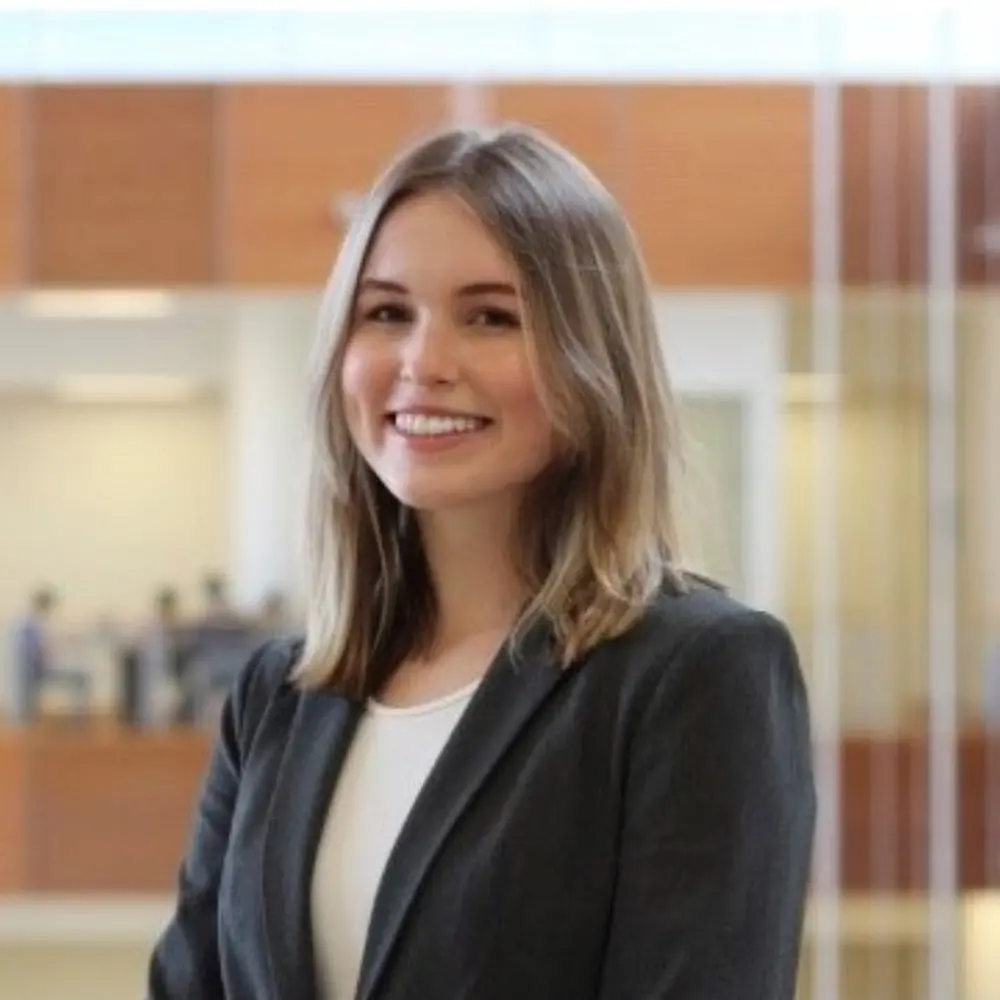
Integrated research, innovative education, and entrepreneurship activities are foundational to the Mayo Clinic & Illinois Alliance’s mission to advance clinical research and translation. Key to that mission is training the next generation of biomedical scientists.
During Summer 2021, the Mayo Clinic & Illinois Alliance connected three U of I students with the opportunity to participate in part of Mayo Clinic’s Case Studies in Entrepreneurship course series. Offered by the Mayo Office of Entrepreneurship in the Clinic Center for Clinical and Translational Science (CCaTS), the four-part series offers participants an opportunity to learn about entrepreneurship through the actual development and execution of a startup idea.
The courses are typically open to Mayo Clinic students, physicians, scientists, fellows or residents enrolled in certain programs. Mayo Clinic made the opportunity available to U of I students as part of the Alliance’s effort to explore expanded educational and cocurricular opportunities in entrepreneurship and health care innovation.
Angelina Wilton, a senior studying molecular & cellular biology and psychology, took the introductory course while she was participating in Mayo Clinic’s Summer Undergraduate Research Fellowship (SURF). She is a senior studying molecular and cellular biology and psychology and is a member of Professor Hee Jung Chung's laboratory in the Department of Molecular & Integrative Physiology. In the introductory course, students learn about entrepreneurship and startup development through exemplar scenarios, immersion experiences, and team-based business development. While Wilton never saw herself as an entrepreneur, she was interested in learning more about entrepreneurship in the field of biological sciences.
When Wilton talks about what she learned during class, the list is quite long. The course culminates with student teams delivering two-minute business pitches to attempt to qualify for Walleye Tank, a pitch competition geared toward health care innovation. “I learned to present my work in a concise way that makes sense to people, and practiced thinking on my feet.”
Wilton explained that she also learned things in the course that she didn’t expect. For instance, the classes broadened her understanding of translational research. “I was accustomed to thinking of translational research as happening from the bench to the bedside, but through my SURF experience and this course I learned that there is bidirectionality to this process. When you are looking at the issues in the clinic, needs of a patient, or gaps in the literature, you have to ask yourself and others, ‘is there actually a problem or a gap that needs to be addressed? Or do we just think it’s a gap?’”
Graduate students Manan Mittal and Kanad Sarkar participated in the most advanced course in the series, Case Studies in Entrepreneurship: Accelerating SBIR/STIR Funding Proposals for Health Care Innovations. The course focuses on preparing a high-quality research proposal designed to support the research of a health care innovation for future commercialization, diving deeply into the Department of Health and Human Services (HHS) Small Business Innovation Research (SBIR) and Small Business Technology Transfer (STTR) programs (R41/R42 and R43/R44), as a roadmap for preparing a research application.
Mittal and Sarkar are electrical and computer engineering (ECE) graduate students in the Singer Research Group, working on spatial audio algorithms. They participated as a team, under the direction of ECE faculty, Professor Michael Oelze and Professor Andrew C. Singer, who also serves as Associate Dean for Innovation & Entrepreneurship for The Grainger College of Engineering.
“We participated in [the Case Studies in Entrepreneurship classes] to understand the process of transforming our research ideas into products that will allow us to make an impact in society while contributing to the economy,” Mittal and Sarkar said.
The Singer Research Group will continue exploring options about their product and how to translate its use into clinical care. Mittal and Sarkar expect that what they learned in the course will continue to serve them as researchers beyond their graduate studies. While the students found the course challenging, they were also glad they had to chance to take it, sharing that they encourage “all students working on novel research ideas in the biomedical space” to explore courses and opportunities to learn more about the entrepreneurship process.
Representatives from both Mayo Clinic and University of Illinois are optimistic about how collaborations like this have the potential to enhance the educational opportunities the Alliance currently offers. "This was a terrific test that leveraged new virtual collaborative tools for an exciting collaboration," said Stephen C. Ekker, Dean of Mayo Clinic Graduate School of Biomedical Sciences and Director of the Mayo Clinic Office of Entrepreneurship. "I am delighted to see the clear success from these first student teams, and I am optimistic we will see many more innovative partnerships between Mayo Clinic and UIUC in the future."